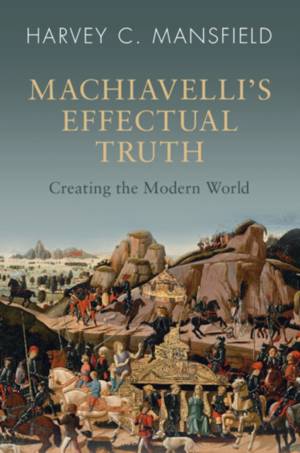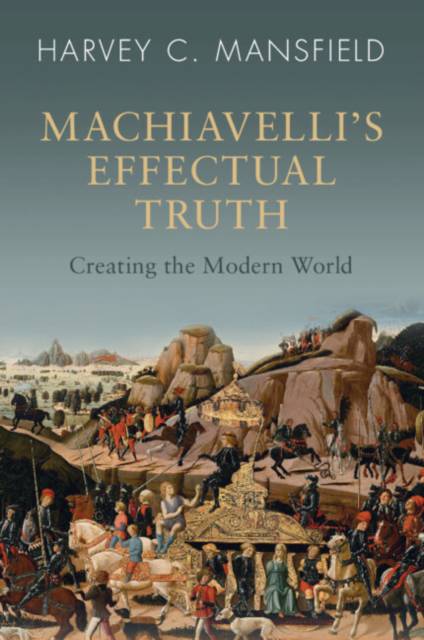
- Afhalen na 1 uur in een winkel met voorraad
- Gratis thuislevering in België vanaf € 30
- Ruim aanbod met 7 miljoen producten
- Afhalen na 1 uur in een winkel met voorraad
- Gratis thuislevering in België vanaf € 30
- Ruim aanbod met 7 miljoen producten
Zoeken
€ 50,45
+ 100 punten
Omschrijving
Machiavelli is said to be a Renaissance thinker, yet in a notable phrase he invented, 'the effectual truth, ' he attacked the high-sounding humanism typical of the Renaissance, while mounting a conspiracy against the classical and Christian values of his time. In Machiavelli's Effectual Truth this overlooked phrase is studied and explained for the first time. The upshot of 'effectual truth' for any individual is to not depend on anyone or anything outside yourself to keep you free and secure. Mansfield argues that this phrase reveals Machiavelli's approach to modern science, with its focus on the efficient cause and concern for fact. He inquires into the effect Machiavelli expected from his own writings, who believed his philosophy would have an effect that future philosophers could not ignore. His plan, according to Mansfield, was to bring about a desired effect and thus to create his own future and ours.
Specificaties
Betrokkenen
- Auteur(s):
- Uitgeverij:
Inhoud
- Aantal bladzijden:
- 250
- Taal:
- Engels
Eigenschappen
- Productcode (EAN):
- 9781009320153
- Verschijningsdatum:
- 21/09/2023
- Uitvoering:
- Paperback
- Formaat:
- Trade paperback (VS)
- Afmetingen:
- 152 mm x 229 mm
- Gewicht:
- 439 g

Alleen bij Standaard Boekhandel
+ 100 punten op je klantenkaart van Standaard Boekhandel
Beoordelingen
We publiceren alleen reviews die voldoen aan de voorwaarden voor reviews. Bekijk onze voorwaarden voor reviews.











